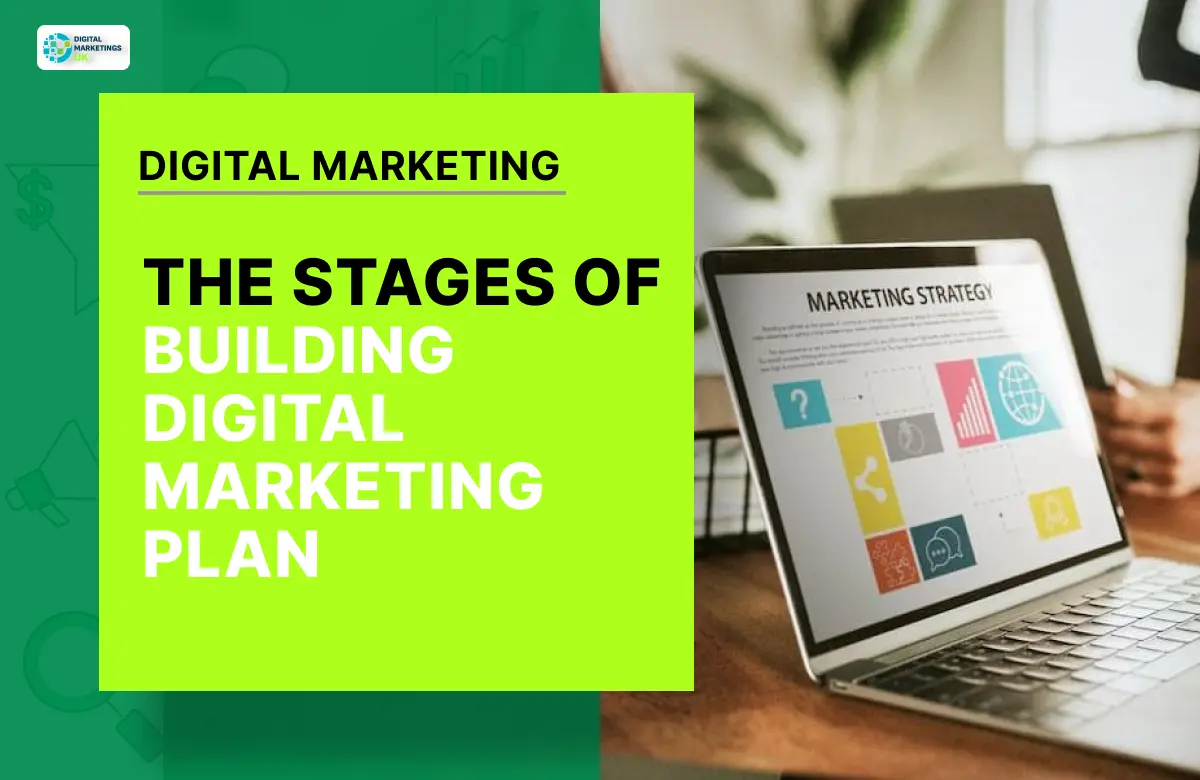Developing a plan for reaching customers through digital marketing is an important process for any organization desiring to either start or expand its Internet marketing strategy. It encompasses a process of identifying objectives and planning marketing and communication methods. Implementing marketing and communicating strategies, and controlling programs’ effectiveness. The Creation of an effective Digital Marketings UK strategy ensures the marketing communications are properly aligned with the company goals thus targeting the right audience in the right media.
Set Clear Digital Marketing Goals and Objectives
The first aspect that should be determined while formulating any digital marketing strategy is objectives and these objectives must be smart. These goals need to be in line with your other business goals, regardless of whether they are aimed at brand recognition, lead generation, web traffic generation, or direct sales. SMART goal setting is necessary to lay down a clear path as to how the business growth is to be monitored and effectively, and how the digital marketing techniques will be assisting it.
Conduct Market Research
The market research is useful for defining and knowing your consumers, your competitors, and the overall market. Through research, you can learn about consumers’ habits, tendencies, their needs. And want and how they make their choices. Making a distinction between your audience’s age, gender, interests, and activity on social media platforms assists in the creation of persuasive marketing techniques. Furthermore, using competitors helps you know which strategies applied in the marketplace work best. And how you can finally come up with unique approaches. The data for comprehensive understanding must be collected with the help of Google Analytics, surveys, insights into social media, and keywords.
Identify Your Target Audience
Understanding your audiences is the basic prerequisite for implementing your digital marketing strategy. Once you understand the market, cluster your audience by their demographic, geographic, psychographic, and behavioral characteristics. Create a customer profile, though it is only a generic idea because you want to communicate only with the right customer.
Choose the Right Digital Marketing Channels
There are several areas of digital marketing to consider: SEO (Search Engine Optimization), SMM (Social Media Marketing), Email marketing, PPC (Pay-Per-Click) advertising, Content marketing, and many others. The right channels will depend on the objectives of the business, the target audience, and the resources needed.
For instance:
SEO is crucial in enhancing a website’s ranking organs naturally on search engines such as Google.
Social Media Marketing lets you to talk directly with customers through tools such as Facebook, Tweeter, and Instagram.
Affiliate marketing is an excellent way of promoting services and products since it focuses on certain niches. And can bring traffic practically in minutes Compare PPC Advertising (Google Ads or Facebook Ads).
Nurturing leads and building long-term relationships with customers is successful when done through Email Marketing.
Content is the king of digital marketing and it will be very important to emphasis on how to develop good content strategy. Examples of content marketing include a blog, a video, an infographic, a podcast, and a social media update. In other words, the purpose of content marketing is to develop, share. And deliver content that is useful, timely, and of interest for your target market.
Create and Implement the Digital Marketing Campaigns
Also, of importance fellow is the notion what type of content will appeal to the target audience?
How often are you going to post?
What are the core areas of, or issues to concentrate on?
How are you going to disseminate and market the content?
Monitor and Measure Performance
This step comes after creating a strategy: it is now possible to conduct the marketing campaigns necessary for success. This includes the development of assets involved (for instance posts on social operations, ads, landing pages, and even an email newsletter), the setting of budget. And the deployment of the campaigns over the identified channels. Conversions should always be at the forefront for any campaign as the goal should always be to ensure that users move in the direction of the intended goal. Which could be subscribing to a newsletter, purchasing or downloading some material.
For instance, if you are involved in a PPC campaign, what is required from you includes coming up with proper copy for your ads, selection of relevant keywords. Determination of your maximum allowable bid and the evaluation of performance.
Optimize and Refine the Strategy
Campaigns need to be monitored after the implementation to determine whether or not the strategies work or are appropriate for the business. Professionals get useful data from analytics which includes activity and engagement of the audience, web traffic, conversion rates, and bounce rates. And the overall ROI using analytics like Google Analytics, Facebook Insights and email marketing campaign reports.
Everyone loves change, and of course the Digital Marketings UK space changes and the approaches must be fine-tuned and updated. Using the performance metrics they tailor campaigns and their strategies including modifying keywords, modifying ad texts, or changing the form of content. This is why one should employ different strategies and tactics for example the A/B test to know which option is best for your audience.
Report and Review
The last phase concerns evaluating the impact of the total digital marketing strategy. Propose a series of reports that will include an overview of major successes, and obstacles, an evaluation of experiences gained, and recommendations for subsequent campaigns. This step enables the stakeholders to appreciate the return on investment and also offers insight on improvements to future plans.
The review process should also include speaking to the effectiveness or ineffectiveness of implemented practices. During the practice, what may be done in the subsequent practice to yield an improved outcome?
Sum Up
Digital marketing is a process of constructing an innovative plan of action and the consistent improvement of this plan. In conclusion, businesses should make an effort to notice the following stages: goal definition, market exploration, channel evaluation. As well as analytics to present useful digital marketing strategies. Flexibility and optimization of a strategy make sense as essential to achieve sustainable success. And development in the modern and growing environment.



